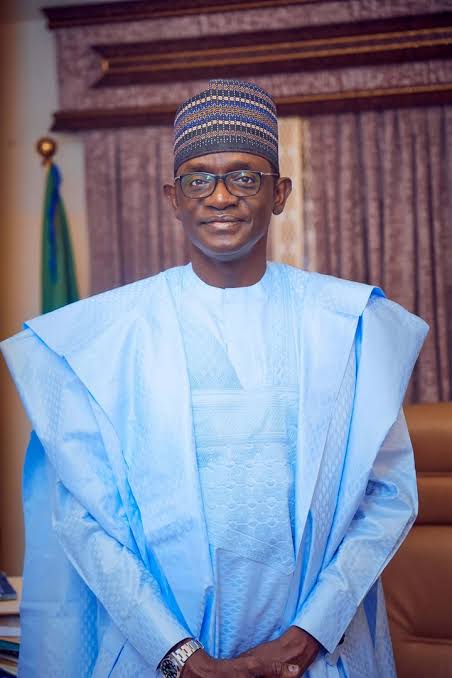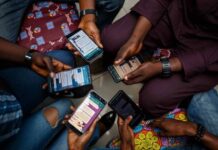Governor Buni: Empowering the blind, empowering the seeing, by Suleiman Hassan Gimba, Esq
Today I woke up looking for a symbol to avouch for my belief that Yobe’s five years of renaissance will continue, and I got that in the form of His Excellency Mai Mala Buni’s commitment to consolidation and economic development in the 2025 budget and in a pint of good news that got workers jumping up and down in excitement throughout the state.
And for one whose solace often comes from literary activities, and especially in reading, but most especially in poetry, it is little wonder that I, shortly after, stumbled upon a 19th-century classic.
It is the poem “In the Bleak Midwinter” by Christina Rossetti. Its words resonated in my head, every chord overfeeding my understanding, and deepening my appreciation. It is perhaps the best depiction of “thy hero cometh” you’ll find in very few words. The relationship between the poem and this article? We’ll get to that.
READ ALSO: HBD Buni, the Leader Who Forfeited His Inheritance for Peace (1), by Hassan Gimba
Of the thirty-seven brothers that make up the entity that is called Nigeria, Yobe is one of the little guys. It is young, very young you could say. Blessed with natural resources and full of promises but as it is with little guys, without the right guidance, they could easily lose their way. Like Batman is to Gotham, this young state has found its hero. This week he approved seventy thousand Naira minimum wage for the state, which is impressive, given that most of its elder brothers are paying the same thing and some have not even adopted the new minimum wage.
Days before this landmark, there was a budget presentation of N320.8 billion, with 55.1% as capital expenditure and 44.9% allocated to recurrent expenditure. The state social sector has been accorded 108.469 billion to prioritise much-needed work in healthcare, and youth and women empowerment. Which includes funding for women in agriculture and development, culminating in the construction of women’s development centres in Nguru, Damagum and Buni Yadi. A new remand home and transit camp will be constructed in Damaturu. Renovations are also planned for the remand home in Gashua. Resources have also been allocated for mass weddings. Blind workshops in Damaturu will also be updated with modern educational resources and sports facilities.
However, I have seen some of the proposals I consider as revolutionary defenestrated by naysayers on social media who think governance is what they see in American movies. Governance, on the other hand, is peculiar to each people. Take for instance mass weddings, we have seen it done so many times in Kano State without understanding why. I believe it is an innovative approach to cultural norms where high dowry and traditional wedding expenses make marriage prospects difficult for low-income earners.
Now what business should a state government have in its indigenes getting married? The answer is simple, social stability. By addressing illicit relationships between adults and the sexual exploitation of indigent women, the government is promoting cultural and religious sensitivity. I remember once getting to know from Dr Kagu Abubakar how women and marriage to kidnapped girls were used as incentives to recruit youths into the Boko Haram terror group.
Also, governments worldwide have a different initiative that reinforces cultural, religious and social norms. For instance, the Japanese government funds matchmaking events and provides relationship counselling for single people to encourage marriages. This is because they have low birth rates that risk the social stability of their country. Meanwhile in Kenya, some local governments give low-interest loans to help men pay for dowries.
Then there is Bhutan which prioritizes Gross National Happiness over GDP, yes you heard that right. The government funds projects that promote spirituality, environmental conservation, and cultural heritage. As an advocate of cultural heritage preservation, I find this so wholesome. To cut the long comparisons short, there are regions in South Korea, China, Singapore and some Scandinavian countries that pay foreigners to move to their countries and marry their citizens in areas where there are significant gender imbalances. Gender imbalances are when there are significant differences between the ratio of men and women in a given population.
Of course, marriages are not the only way the sociopolitical issues in our society are being addressed. Women would be provided with a safe space for education, vocational training, and communal engagement. These centres would enable conversations and critical thinking among women, empowering them in different sectors, and thereby reducing the dependency ratio in the state. It also addresses a key development gap in northern Nigeria.
The youth empowerment and blind workshops will promote social inclusion and skills development. The remand homes show a commitment to improving juvenile justice and supporting vulnerable and underrepresented groups.
For these people, when they sing “In the Bleak Midwinter” they’d say, “in the bleak midwinter/ Frosty wind made moan/ Earth stood hard as iron/ Water like a stone/ Harmattan had weakened abled bodies/ Hunger on hunger, hunger on hunger/ In the bleak midwinter, he came, improving minimum wage, empowering women, empowering youth, empowering the blind, empowering the seeing, getting our children wed. This is how heroes are born!
Follow the Neptune Prime channel on WhatsApp:
Do you have breaking news, interview request, opinion, suggestion, or want your event covered? Email us at neptuneprime2233@gmail.com





